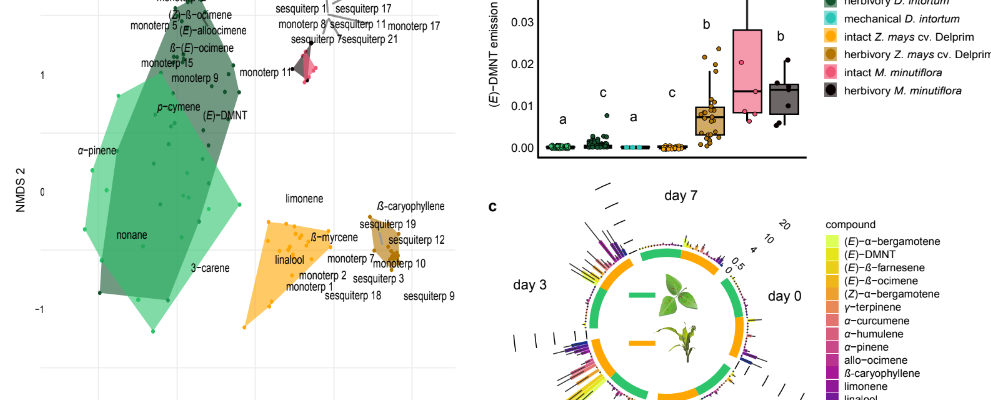Over two decades ago, scientists developed a push-pull intercropping strategy that received critical acclaim for synergizing food security with ecosystem resilience in smallholder farming. The strategy suppresses Lepidopteran pests in maize through a combination of a repellent intercrop (push), commonly Desmodium spp., and an attractive, dead-end border crop (pull). Key is the intercrop’s constitutive release of volatiles that repel herbivores. Surprisingly, however, we found that Desmodium does not constitutively release volatiles, and only minimally upon herbivory. Further, in oviposition choice settings, Spodoptera frugiperda, a devastating invasive pest, was not repelled by Desmodium volatiles. In search of an alternative mechanism, we found that neonate larvae strongly preferred Desmodium over maize. However, their development stagnated and none survived. In addition, larvae were frequently seen impaled and immobilized by the dense network of silica-fortified, non-glandular trichomes. Thus, entirely different from repelling adult moths, Desmodium intercepts and decimates dispersing offspring. As a hallmark of sustainable pest control, maize-Desmodium intercropping has inspired countless efforts trying to emulate a misconceived stimulo-deterrent diversion in other cropping systems. However, detailed knowledge of the actual mechanisms is required to rationally improve the strategy, and translate the concept into other cropping systems.
Authors: Anna Laura Erdei, Aneth Bella David, Eleni C. Savvidou, Vaida Džemedžionaitė, Advaith Chakravarthy and Béla Péter Molnár
Contact address: teun.dekker@slu.se
Institution: Department of Plant Protection Biology, Swedish University of Agricultural Sciences, Alnarp, Sweden
Twitter name of the institution: @_SLU
Twitter link: https://x.com/_SLU
Available downloads:
The push-pull intercrop Desmodium does not repel, but intercepts and kills pests


